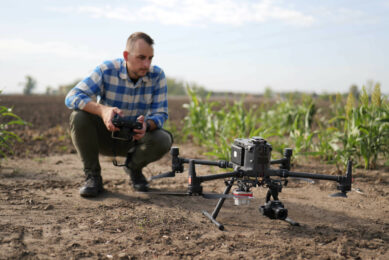Drone images help to fight botrytis

Six growers from the Dutch Dune and Bulb Region started working with Unmanned Valley in the Remote Sensing for Ornamental Cultivation project. The question is: how can you use satellite and drone technology to detect diseases and pests at an earlier stage?
Early detection allows you to take more targeted action. The main goal: using fewer crop protection agents and a healthy crop. Duch organisation Greenport pays attention to this project wherein botrytis was chosen. In retrospect, a good choice because in the spring of 2023 there was often botrytis in the crop. This allowed the drone to collect a lot of data. The thousands of photos taken by the drone are assessed (annotated) by the growers to see whether botrytis is present. This is the manual work that also belongs to artificial intelligence (AI): feeding the system with information.
Next steps
These images eventually lead to a model. Can this model accurately recognize botrytis? This will be investigated at a later stage. You can link this model to protection: earlier or more targeted. Another step further: predicting where – also – botrytis will occur, by connecting more sensors to it. Also consider soil sensors, local weather conditions.
Targeted protection is already possible: it is possible to control per cap and there are already techniques that do not spray, but touch the plant.
One of the growers Henk Verdegaal has been involved in precision agriculture for some time: the steps being taken are slow but steady: new techniques are becoming available. For example, a drone can already fly independently (legislation still requires a pilot) and AI will ensure that data is converted faster and better into information that can help it make decisions.
Join 17,000+ subscribers
Subscribe to our newsletter to stay updated about all the need-to-know content in the agricultural sector, two times a week.



